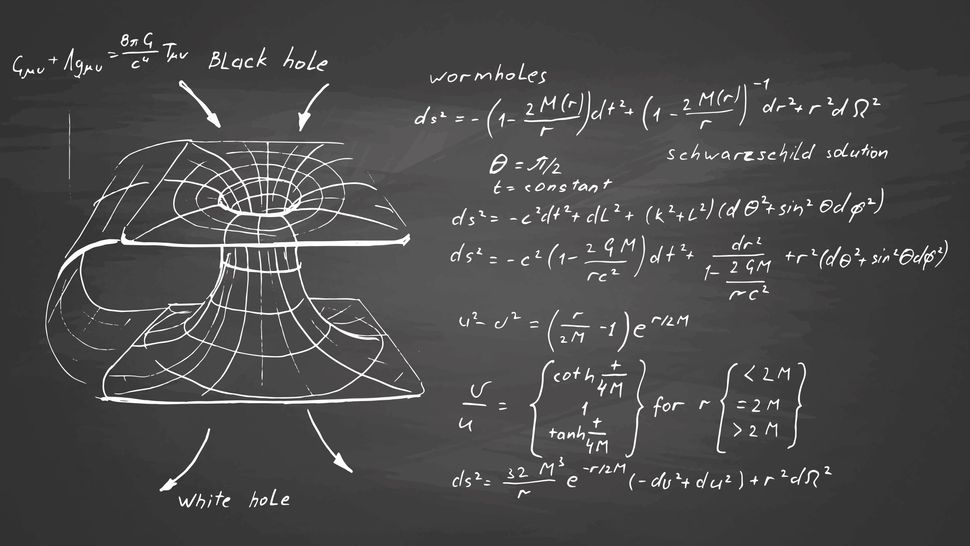Strange mathematical term changes our entire view of black holes
By Paul Sutter about 5 hours ago
Black holes keep getting weirder

Black holes are getting weirder by the day. When scientists first confirmed the behemoths existed back in the 1970s, we thought they were pretty simple, inert corpses. Then, famed physicist Stephen Hawking discovered that black holes aren't exactly black and they actually emit heat. And now, a pair of physicists has realized that the sort-of-dark objects also exert a pressure on their surroundings.
The finding that such simple, non-rotating "black holes have a pressure as well as a temperature is even more exciting given that it was a total surprise," co-author Xavier Calmet, a professor of physics at the University of Sussex in England, said in a statement.
Calmet and his graduate student Folkert Kuipers were examining quantum effects near the event horizons of black holes, something that is fiendishly hard to pin down. To tackle this, the researchers employed a technique to simplify their calculations. As they were working, a strange term appeared in the mathematics of their solution. After months of confusion, they realized what this newly discovered term meant: It was an expression of the pressure produced by a black hole. Nobody had known this was possible before, and it changes the way scientists think about black holes and their relationships with the rest of the universe.

Hawking's engine
In the 1970s, Hawking became one of the first physicists to apply quantum mechanics to try to understand what happens at the event horizon — the area around a black hole beyond which nothing, not even light, can escape. Prior to this work, everyone had just assumed that black holes were simple objects. According to general relativity, the theory of gravity that first suggested black holes could exist, there is nothing at all remarkable about the event horizon. The event horizon is the "boundary" of a black hole, defining the region where exiting the black would require traveling faster than light. But it was just an imaginary line in space — if you happen to cross it, you wouldn't even know you did, until you tried to turn around and leave.
More:
https://www.livescience.com/black-holes-press-out-on-universe

